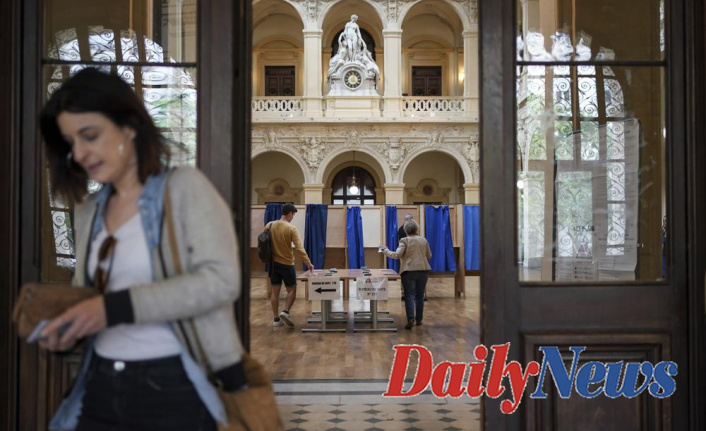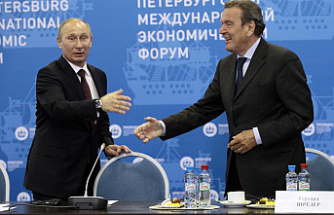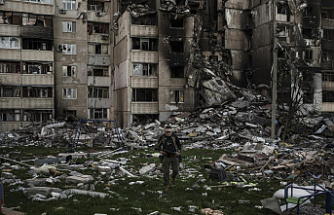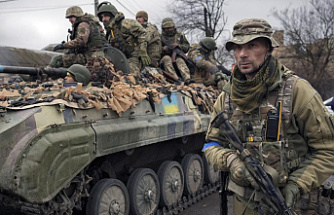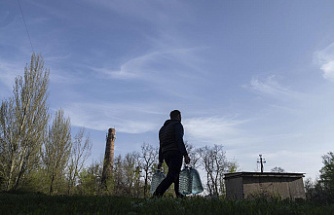This election has broad repercussions on Europe's future. President Emmanuel Macron was considered the front-runner, but Marine Le Pen is a formidable opponent.
Macron, a centrist candidate, is appealing to voters for a second five year term. This is despite a president who was plagued by protests and the pandemic as well as Russia's war against Ukraine. If Macron wins, he would be the first French president to win a second term in 20 years.
France's Sunday vote, which is a nuclear-armed country with one of the largest economies in the world, could have an impact on the war in Ukraine. France has been a key player in diplomatic efforts and strongly supported sanctions against Russia for its invasion.
Recent opinion polls show that Macron, a 44-year old pro-European Macron, is winning. However, the margin of victory over his 53-year-old rival far-righter differs. The polls predict a record-breaking number of people who either will not vote at all or cast a blank ballot.
Le Pen's support among France's electorate has risen to its highest level in this campaign. Much will depend on Sunday's turnout. At midday, participation was at 26.1%. This is slightly lower than the April 10th first-round vote.
Many people who are expected to vote for Macron do so to avoid Le Pen's platform, which is extreme and antidemocratic. She plans to ban public wearing of the Muslim headscarf. Macron has raised questions about her party's Russian ties.
Le Pen declared, "I am calm," as she voted in Henin-Beaumont's northern town and took selfies of her fans. "I believe in the French."
Macron, on the other hand, welcomed crowds with handshakes, embraces, and hugs in Le Touquet, an English Channel coastal town.
Both candidates want to court the 7.7million supporters of Jean-Luc Melenchon (leftist), who was one of the 10 presidential candidates eliminated from the first round on April 10.
Many who voted in favour of left-wing candidates in round one saw the second round as a difficult choice between Le Pen (a far-right, antiimmigrant nationalist) and Macron (a leader some feel has steered too far to the right during his first term. It could be that left-wing voters vote for Macron or not, which would determine the outcome. This would leave Macron to fight Le Pen.
Stephanie David voted west of Paris, in the suburb Le Pecq. She had previously voted for Macron in round 1.
"It was the best choice," stated the transport worker. She also said that Le Pen was anathema. "Even though she may try to soften her rhetoric I cannot stomach it," said the transport worker.
Jean-Pierre Roux, a retired French politician, voted to exclude Jean-Marie Roux, Jean-Marie's father, in France's 2002 presidential election. He also voted against his daughter, Jean-Pierre Roux, in 2017. Roux couldn't bring himself to vote again for Macron this time because he was too arrogant. Roux placed an empty envelope into the voting box.
He said, "I don't disagree with his ideas, but I can't stand the person."
Le Pen's appeal to the working class, which is facing rising prices due to Russia's war in Ukraine, has been a success. Even Macron admitted that the approach has resonated with the public. If elected France's first female president, she said that lowering the cost of living would be her top priority. She also portrayed herself as the candidate who will help those struggling to make ends meets.
Le Pen claims Macron's presidency has caused the country to be deeply divided. He points out the yellow vest protest movement which rocked his government prior to the COVID-19 pandemic. It was accompanied by months of violence against economic policies thought to hurt the poorest.
Macron sought to appeal voters of immigrant heritage, religious minorities and immigrants. Le Pen's proposed policies against Muslims and placing French citizens first in line to receive jobs and benefits are just two examples of Macron's efforts to do so.
Macron also highlighted his climate and environmental achievements in an effort to attract young voters who are inclined to vote for far-left candidates. Many French youth are especially interested in climate issues.
Macron was a proponent of the slogan "Make the Planet Great Again" in his first five years. However, he gave in to anger from yellow vest protesters and scrapped a tax increase on fuel prices. Macron said that his next prime minister will be responsible for environmental planning, as France strives to be carbon neutral by 2050.
Le Pen, who was once a climate-change skeptic has now declared her desire to eliminate subsidies for renewable energy. She has pledged to end wind farms and instead invest in hydro and nuclear energy.

